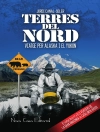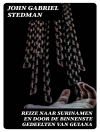In ‚At Last: A Christmas in the West Indies, ‚ Charles Kingsley presents a vivid narrative that weaves together a rich tapestry of travelogue, social commentary, and literary reflection. Set against the backdrop of the Caribbean, the book offers an alluring depiction of the region’s natural beauty and cultural diversity, all while infusing his prose with a compelling lyrical style. Kingsley’s use of sensory detail immerses readers in the vibrant landscapes and the complexities of colonial society, exploring themes of race, class, and the interplay between nature and humanity, reflective of the Victorian literary milieu in which he wrote. Charles Kingsley was not only a novelist but also an influential clergyman and social reformer deeply engaged with the pressing issues of his time. His experiences in the West Indies and his advocacy for social justice and environmental stewardship intersect powerfully in this work, revealing both the charm and challenges of colonial life. Kingsley’s perspectives are enriched by his commitment to the struggles faced by the indigenous populations, informed by his own travels and observations. For readers seeking a nuanced exploration of colonialism through lyrical prose, ‚At Last: A Christmas in the West Indies‘ stands as a significant contribution to 19th-century literature. Kingsley’s thoughtful reflections invite readers to contemplate the intersections of culture, nature, and morality, making this work not only an enjoyable read but also an essential study for understanding the complexities of a turbulent era.
Über den Autor
Charles Kingsley (1819–1875) was a notable figure of the 19th century: a clergyman, university professor, historian, and novelist. His literary contributions intersect with his moral and social concerns, reflecting the Victorian era’s complex perspectives on religion, society, and nature. A fierce advocate for social reform, Kingsley was associated with Christian socialism and was sympathetic to the idea of evolution, a controversial subject at the time. His novel ‚Westward Ho!‘ (1855) celebrates the Elizabethan age’s spirit of adventure and English imperialism, while his book ‚At Last: A Christmas in the West Indies‘ (1871) provides an engaging account of his travels, offering both vivid description and commentary on colonial practices and missionary work. Kingsley’s work was influenced by his desire to reconcile science and religion, a theme present in ‚The Water-Babies‘ (1863), a fantasy novel with elements of satire and didacticism, reflecting his broader literary style of blending entertainment with instruction and moral messages. A prominent element of his style is the vivid and imaginative power of his descriptions, often laced with idealism reflective of his moral and religious convictions. Kingsley’s legacy lies not only in his novels but also in his contributions to historical writings and children’s literature, where he continues to be remembered as a passionate and principled figure of Victorian literature.












